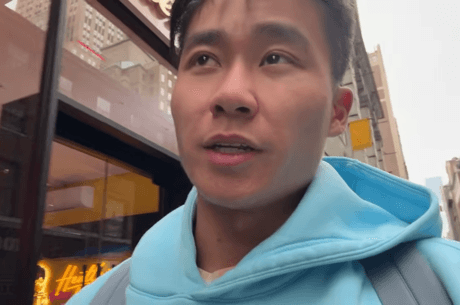Inside Gaming: Further Studies Regarding Problem Gambling, Boston Bickering, and More

In this week’s edition of Inside Gaming, we take a look at casinos potentially ignoring problem gaming, Mississippi’s attempt to increase gaming in the state, and the Boston mayoral race’s affect on casino gambling in Massachusetts.
Are Casinos Ignoring Problem Gamblers?
In last week’s edition of Inside Gaming, we discussed a story about Featurespace and their focus on problem gambling. The commercial spinoff of a University of Cambridge engineering department is working with online betting companies in the UK to both protect problem gamblers and promote sustainable, long-term gambling (and thus profits) for the gambling websites.
Well, on Thursday, ABC reported that casinos in the United States have both the data and the analystics to indentify problem gamblers, and may be able to stop them from becoming addicts. However, few of the casinos, the researchers say, are making use of the new science. Using loyalty programs that record betting behaviors and internet gaming companies that can capture every microcosm, the casinos have compiled large amounts of data.
Bwin partnered with the Cambridge Health Alliance, an affiliate of Harvard Medical School, to create an early warning system to indentify problem gamblers.
“We used that to start creating an epidemiology of gambling: how much a gambler spends, how much time they gamble,” Dr. Sarah Nelson tells ABC. “We then went on to try to figure out if we could use that to predict which people might run into trouble and to intervene before they develop problems.”
According to Nelson, previous studies of problem gamblers have relied on surveys — a gambler’s own account of his or her behavior. Few actually track their own betting.
“We are one of the first to do that,” she says.
In May, Nelson presented these findings at a conference in Las Vegas. Like the Featurespace model discussed last week, she attests that when bettors inhibit sporadic patterns, often times they are the people with problems. Nelson admits that the level of accuracy for their formula, titled Sports Bettor Algorithm 1.1, is still quite low, and that her research has only established a correlation between certain behaviors and addiction. It does not prove causality.
Nevertheless, despite the fact that six to eight million American adults suffer from some form of gambling addiction according to the National Council On Problem Gambling, some casinos aren’t buying into Nelson’s pitch.
“You’re talking about trying to diagnose a mental health disorder, Alan Feldman, a spokesman for MGM Resorts tells the Wall St. Journal. “I don’t know too many nonprofessionals who are trained to do that offhand.”
In the same Wall St. Journal article, a different representative from MGM calls the idea that problem gamblers can be indentified using their player patterns “hogwash.”
Gary Loveman, CEO of Caesars Entertainment and a former Harvard Business School professor who pioneered casino data mining, agrees with Feldman and his colleague. “I think it’s a terrible idea,” Loveman says. “Is it McDonald’s obligation to decide you have a problem because you have a tendency to eat high-calorie lunches? You could take this to ridiculous extremes.”
888 Holdings already has an algorithm system in place in Europe, and with the approaching launch of WSOP.com and other online gaming ventures in the United States, they will likely have the first algorithm in place here. Bwin.Party, a company that is also about to launch in the U.S., plans to roll out a variety of intervention, including a pop-up screen that may tell gamblers how long they have been playing.
Itai Frieberger, 888’s chief operator officer, understands the negative affects of problem gambling within his customer base. “There’s a very strong negative business agenda attached to problem gamblers,” he says. “It’s bad for our reputation and bad for business.”
Joachim Haeusley, Bwin’s responsible gaming manager, agrees. “A player who gets into trouble is a lost customer.”
With the emergence of legal online gambling in the U.S., addressing problem gambling could potentially be a political or regulatory road block. 888 and Bwin are prepared to address the issue to not only protect their customers, but, as Haeusley admits, to keep their customers in business.
ABC News and the Wall St. Journal have more.
Boston Mayoral Candidates Disagree on Casino Gambling
As we’ve reported numerous times here in Inside Gaming, Eastern Massachusetts is one of the three zones in the Bay State where a licensed, full-scale casino is scheduled to be built. Suffolk Downs racetrack in East Boston was once a favorite to win the license — the racetrack partnered with the aforementioned Loveman and Caesars in 2011 because Loveman lives in the area, taught in the area, and owns a small piece of the Boston Celtics — but there are citizens within Boston who would rather send the casino to Milford to be built by Wynn or Foxwoods.
The debate has spilled into the Boston mayoral race, where Councilor Mike Ross called the construction of the casino inevitable. All of the dozen candidates are discussing the hot-button issue, and Councilor at Large John R. Connolly called for a city-wide vote regarding the proposed casino. He also threatened to sue to stop a casino from opening.
This declaration prompted several responses from his fellow candidates, including Ross, who issued the following statement.
“We can’t stick our heads in the sand,” the councilman says. “State law says casino gambling is coming to Eastern Massachusetts. The entire region is going to suffer negative consequences when a casino opens, so I made the tough decision early in this process that I’d support a casino in East Boston so that the city gets the tax revenue to fund critical priorities like early childhood education, job training, and programs that mitigate the negative effects.”
In a statement from spokesman Kevin Franck, Rob Consalvo called for an “Eastie-only” vote. “Those are the folks will be most affected,” Franck said. “It’s really that simple.”
Others disagree, arguing that segmenting the city is the wrong thing to do.
Businessman Bill Walczak remains the most aggressive among the anti-casino candidates in the city’s mayoral race, saying his personal family history and his experiences running the Codman Square Health Center have exposed him to the negative side of gambling. Walczak implores that the city should construct an “East Boston Innovation District” instead.
The Boston Globe has more.
Mississippi Revamping Casino Gambling
The Isle of Capri opened in Biloxi, Mississippi in 1992, but as the states around Mississippi improved casino gambling, the property declined. Finally, it was purchased by the Golden Nugget, and reopened under the new name in June of this year. New gaming areas were constructed along with a flyover that connects the casino to a parking garage. A large, Las Vegas-like swimming pool is scheduled to be built as part of a $100 million renovation of the property that is scheduled to finish in March of 2014.
Brad Rhines, the casino’s vice president of marketing, says the project will take the facility, “from the oldest casino on the Gulf Coast to the newest, freshest.”
Mississippi was once the nation’s third-largest gaming market behind Nevada and New Jersey, but the recession, natural disasters (Hurricane Katrina and the Deepwater Horizon oil spill), and increased competition have pulled the Magnolia State back to the pack.
“Gaming isn’t unique anymore — it’s everywhere,” says Allen Godfrey, executive director of the Mississippi Gaming Commission.
After reaching $2.8 billion in gaming revenue in 2007, the numbers have gradually declined. In 2012, the state recorded $2.25 billion in gaming revenue, which was largely flat from 2011. Those numbers don’t include casinos run by the Mississippi Band of Choctaw Indians, who aren’t required to report revenue data to the state.
Illinois, Michigan, Missouri, Pennsylvania, and Connecticut have all surpassed Mississippi in recent years.
“Early on, a lot of our visitors came from Oklahoma and Nebraska,” says Lyn Arnold, president and CEO of the Tunica County Chamber of Commerce and Economic Development.
Along with renovations at the new Golden Nugget, State Rep. Bobby Moak says the future of the state’s gaming industry lies online. He says he will introduce a bill next year that will regulate, license, and tax online gaming at five percent of gross revenue. According to Moak, online gaming licenses would only be given to companies with land licenses in the state.
“Online gaming is going on right now,” Moak says. “It’s happening. We need to tap into that.”
The state also wants to grow more homegrown casino leaders, and the University of Southern Mississippi now offers casino management certification as part of a four-year casino-management degree program.
For more on Mississippi’s casino resurgence, check out the Clarion Ledger.
*Photo courtesy of blog.vegas.com
Get all the latest PokerNews updates on your social media outlets. Follow us on Twitter and find us on both Facebook and Google+!









